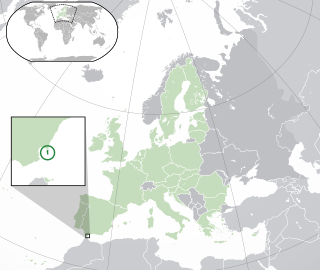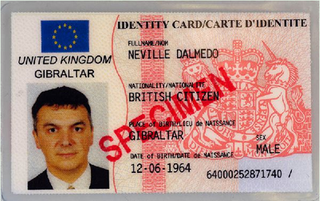The history of Gibraltar portrays how The Rock gained an importance and a reputation far exceeding its size, influencing and shaping the people who came to reside here over the centuries.

The politics of Gibraltar takes place within a framework of a parliamentary representative democratic British Overseas Territory, whereby the Monarch of the United Kingdom is the constitutional head of state represented by the Governor of Gibraltar. The Chief Minister of Gibraltar is the head of Government. As a British Overseas Territory, the Government of Gibraltar is not subordinate to the Government of the United Kingdom. The British Government, however, is responsible for defence and external affairs but Gibraltar has full internal self-government under its 2006 Constitution.

The British Overseas Territories (BOTs), are the 14 territories with a constitutional and historical link with the United Kingdom, but do not form part of the United Kingdom itself. The permanently inhabited territories are internally self-governing, with the United Kingdom retaining responsibility for defence and foreign relations. All of the territories are inhabited by civilians, except three that are chiefly or only inhabited by military or scientific personnel. All fourteen have the British monarch as head of state. These UK government responsibilities are assigned to various departments of the Foreign, Commonwealth and Development Office and are subject to change.

The culture of Gibraltar reflects Gibraltarians' diverse origins. While there are Spanish and British influences, a result of the territory's status as a British overseas territory and its proximity to Spain, the ethnic origins of most Gibraltarians are a mix of Andalusian Spaniards, Genoese, Maltese, Portuguese and British. The main religion is Christianity, the majority group being the Roman Catholic Church, then the Church of England. There is a long established Sephardic Jewish community, a number of Hindu Indians and a Moroccan Muslim population. Gibraltarians of Genoese origin came to The Rock in the 18th century, with the Maltese and Portuguese following in the 19th century, coming to work and trade in the British military base. Spanish Andalusian origins are the result of generations of intermarriage with inhabitants of surrounding towns.

Gibraltar, a British Overseas Territory, located at the southern tip of the Iberian Peninsula, is the subject of a territorial claim by Spain. It was captured in 1704 during the War of the Spanish Succession (1701–1714). The Spanish Crown formally ceded the territory in perpetuity to the British Crown in 1713, under Article X of the Treaty of Utrecht. Spain later attempted to recapture the territory during the thirteenth siege (1727) and the Great Siege (1779–1783). British sovereignty over Gibraltar was confirmed in later treaties signed in Seville (1729) and the Treaty of Paris (1783).

Sir Joshua Abraham Hassan, nicknamed "Salvador" (Saviour), was a Gibraltarian politician, and first mayor and Chief Minister of Gibraltar, serving four terms as chief minister for a total of over 20 years. He is seen as the key figure in the civil rights movement in Gibraltar, and played a key role in the creation of the territory's institutions of self-government.
Gibraltarian status is a legal status in Gibraltar law defined by the Gibraltarian Status Act, 1962. Persons with Gibraltarian status are registered on the Register of Gibraltarians.

Belonger status is a legal classification normally associated with British Overseas Territories. It refers to people who have close ties to a specific territory, normally by birth or ancestry. The requirements for belonger status, and the rights that it confers, vary from territory to territory.

A British Overseas Territories citizen (BOTC), formerly called British Dependent Territories citizen (BDTC), is a member of a class of British nationality granted to people connected with one or more of the British Overseas Territories.

Gibraltar is a British Overseas Territory and city located at the southern tip of the Iberian Peninsula. It has an area of 6.7 km2 (2.6 sq mi) and is bordered to the north by Spain. The landscape is dominated by the Rock of Gibraltar, at the foot of which is a densely populated town area, home to some 32,688 people, primarily Gibraltarians.

The history of the Jews in Gibraltar dates back more than 650 years. There have been periods of persecution, but for the most part the Jews of Gibraltar have prospered and been one of the largest religious minorities in the city, where they have made contributions to the culture, defence, and Government of Gibraltar.

The military history of Gibraltar during World War II exemplifies Gibraltar's position as a British fortress since the early 18th century and as a vital factor in British military strategy, both as a foothold on the continent of Europe, and as a bastion of British sea power. During World War II, Gibraltar served a vital role in both the Atlantic Theatre and the Mediterranean Theatre, controlling virtually all naval traffic into and out of the Mediterranean Sea from the Atlantic Ocean.

Gibraltar is a juridically independent area in western Europe, and forms part of the Commonwealth of Nations as a British overseas territory.

The following outline is provided as an overview of and topical guide to Gibraltar:

The Gibraltar variant British passport is a British passport issued to British Citizens and British Overseas Territory Citizens who work or live in Gibraltar. Having Gibraltarian status alone, without being resident in Gibraltar, is insufficient to obtain a Gibraltar Passport. Gibraltar passports are issued by the Passport Office of the Gibraltar Civil Status and Registration Office. Since 2005, passports issued in Gibraltar have been biometric.

The British Government's decision to enforce a mass evacuation of the civilian population during the Second World War from the Crown colony of Gibraltar, in order to increase the strength of The Rock with more British Armed Forces personnel, meant that most Gibraltarians were forced to be away from Gibraltar and did not have a place they considered to be home. Only those civilians with essential jobs were allowed to stay. However, this event gave the entire community a heightened sense of "Britishness" by sharing in the war effort.

The Gibraltar identity card is an official identity document issued by Civil Status and Registration Office of the Government of Gibraltar to all British citizens living in Gibraltar. Validity of the document is 10 years.

Gibraltar is a British Overseas Territory located on the southern end of the Iberian Peninsula at the entrance of the Mediterranean Sea. During the early days of the British administration, Gibraltar was maintained primarily as a military outpost with limited attention paid to its role as a trading post. Initially long term settlement of Gibraltar was uncertain but as Spain's power waned it became established as an important base for the British Royal Navy. Throughout the 19th century there was conflict between the competing roles of military and trading posts, leading to tensions between the civilian population and the Governor of the day. Some Governors encouraged the development of the civilian role in government, whilst others regarded it as a nuisance. As a result, compared with other former British colonies, civilian Government in Gibraltar emerged largely in the 20th century as the needs of the civilian population were often considered by Governors as subordinate to the needs of the military. Since World War II, Gibraltarians have increasingly asserted their own individual identity. The Rock's relationship with Spain and the sovereignty dispute continues to affect the Politics of Gibraltar to this day.
Albert Andrew Poggio GMH, OBE, is a Gibraltarian businessman and political consultant. Besides being Director of the Friends of Gibraltar Heritage Society and member of the United Kingdom Overseas Territories Association Committee, he was Director of Gibraltar Electrical Supplies, Director of the Gibraltar Tourist Board and managing director of the Gibraltar Information Bureau in London. Poggio married in the late 1960s Sally, an Israel-born solicitor; the couple had a daughter, Sarah Tracey Poggio, born in 1968.

The European Union (Referendum) Act 2016 was an Act of the Gibraltar Parliament, which implements the United Kingdom's European Union Referendum Act 2015 in Gibraltar. It was the first time a referendum has been held in Gibraltar on the issue of continued EU membership since the territory joined along with the United Kingdom in 1973 and was the first time that any British Overseas Territory had participated in a UK-wide referendum. The Act commenced on 26 January 2016, and received assent from the Governor of Gibraltar on 28 January 2016.










